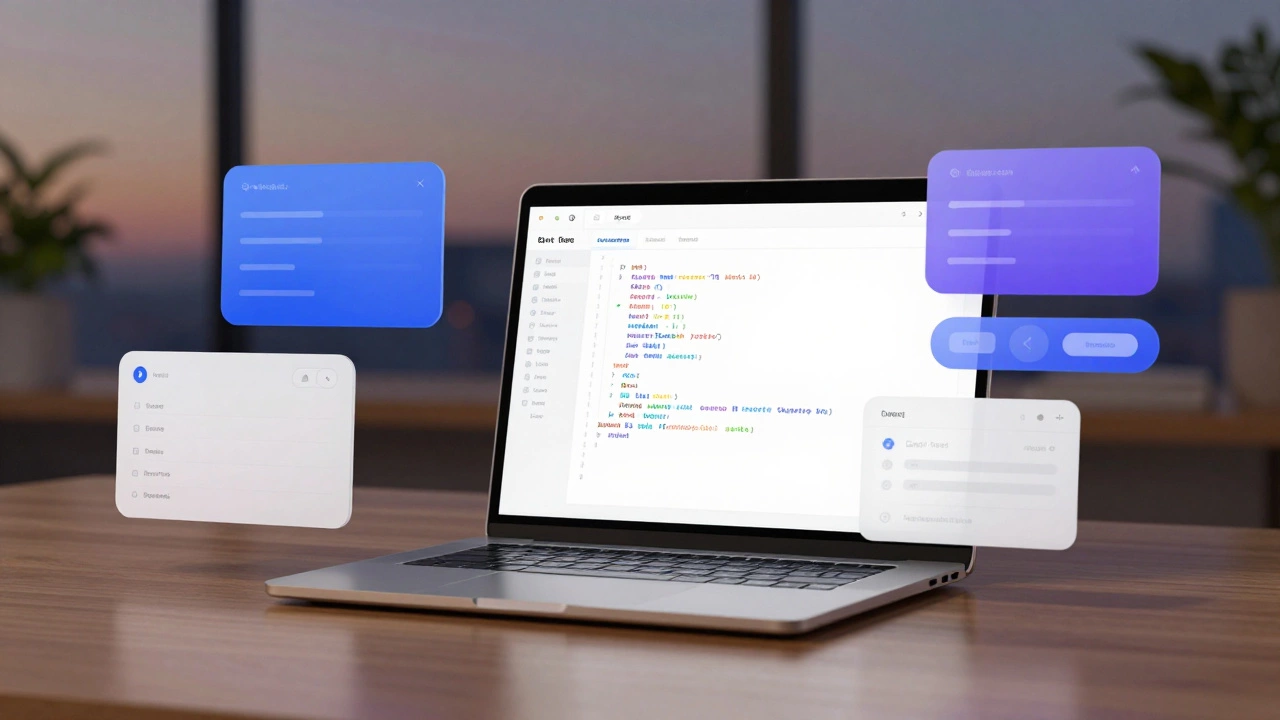Whether you’re building your first site or looking to upgrade a client’s portal, web development is full of choices. From picking a framework to deciding if a site should be responsive or adaptive, each decision shapes the final product. In this guide we’ll cut through the noise and give you practical steps you can use right now.
Frameworks are the foundation that let you write less code and get more done. React still dominates, but Vue, Angular, Svelte and SolidJS are gaining ground. If you need a huge ecosystem and lots of plugins, React or Angular are safe bets. For a lightweight, fast‑loading site, give Svelte or SolidJS a try. Think about your team’s skill set, the project timeline, and how easy it is to find help when you pick a framework.
Responsive design uses flexible grids and media queries so a page reshapes itself on any screen. Adaptive design serves different versions of a page based on the device. Responsive is generally easier to maintain, while adaptive can give you more control over performance on specific devices. A quick test: shrink your browser window. If the layout smoothly adjusts, it’s responsive; if it jumps to a new layout at breakpoints, you’re looking at an adaptive site.
Backend work often feels like a separate beast, but you don’t need a design degree to start. Learn the basics of server‑side languages like Node.js, Python or PHP, understand how APIs talk to the front end, and practice building simple databases. Once you’ve got a tiny CRUD app running, you’ll see how the pieces fit together.
Stress is real in web development—tight deadlines, endless debugging, and constantly changing tech can wear you down. Break tasks into small chunks, use version control to avoid losing work, and set realistic expectations with clients or managers. A short walk or a coffee break can reset your focus better than powering through.
The job market today offers flexibility. Many developers work from home, some enjoy a hybrid schedule, and a few still sit in an office. Remote work lets you pick the tools that fit your style, but it also means you need good communication habits. Keep your code tidy, write clear comments, and use project boards to track progress.
If you’re just starting, there are ways to make money while you learn. Small freelance gigs, bug‑fixing tasks, or creating simple WordPress sites can bring in cash and build a portfolio. The key is to showcase real projects—not just theory—in your online profile.
Web development is always evolving, but the core ideas stay the same: clear structure, responsive layouts, and clean code. Keep experimenting with new frameworks, stay updated on best practices, and don’t forget to take breaks. With the right mix of tools and mindset, you’ll build sites that look great, work fast, and keep both users and clients happy.

Django is a powerful Python web framework that helps developers build secure, scalable websites quickly. Used by Instagram and Mozilla, it includes built-in tools for authentication, databases, and admin panels. Perfect for content-heavy apps and beginners who know Python.
Read More
Java isn't dying in 2024-it's just no longer the star of frontend development. It still powers 90% of Fortune 500 companies, Android backends, and enterprise systems. Learn where Java thrives and who should still learn it.
Read More
Is being a web developer stressful? Real insights on burnout, unrealistic deadlines, and how to protect your mental health in tech-without quitting your job.
Read More
In 2024, React is the most used web development framework, powering millions of sites from startups to giants like Instagram and Airbnb. Learn why it dominates the market and what alternatives exist.
Read More
SEO isn't separate from coding-it's built into every line of HTML, JavaScript, and server response. Learn how web developers naturally handle SEO through clean code, performance, and structure.
Read More
Find out exactly how much a small business website costs in 2025-from DIY builders to professional WordPress sites. Learn what’s included, hidden fees, and how to avoid overpaying.
Read More
Web development won't disappear in 10 years - it'll transform. AI won't replace developers, but it will change what the job looks like. Here's what actually matters for the future.
Read More
VS Code is enough for most web developers in 2025. It supports modern frameworks, integrates with cloud tools, and adapts to your workflow. Learn when it shines-and when you might need something heavier.
Read More
Web developers are still in high demand in 2025, but the skills needed have evolved. AI hasn't replaced them-it's raised the bar. Learn what employers really want and how to break into the field.
Read More
Find out what makes a website valuable and how much you can realistically sell it for based on traffic, profit, and automation. Real examples from 2025 marketplaces.
Read More
Compare PHP and Python for backend development, covering frameworks, performance, job market, hosting costs, and practical tips to help you decide which language to learn.
Read More
Learn why Node.js is a runtime, not a framework, and when to add Express, Koa, or NestJS. Clear definitions, comparisons, and a practical decision guide.
Read More